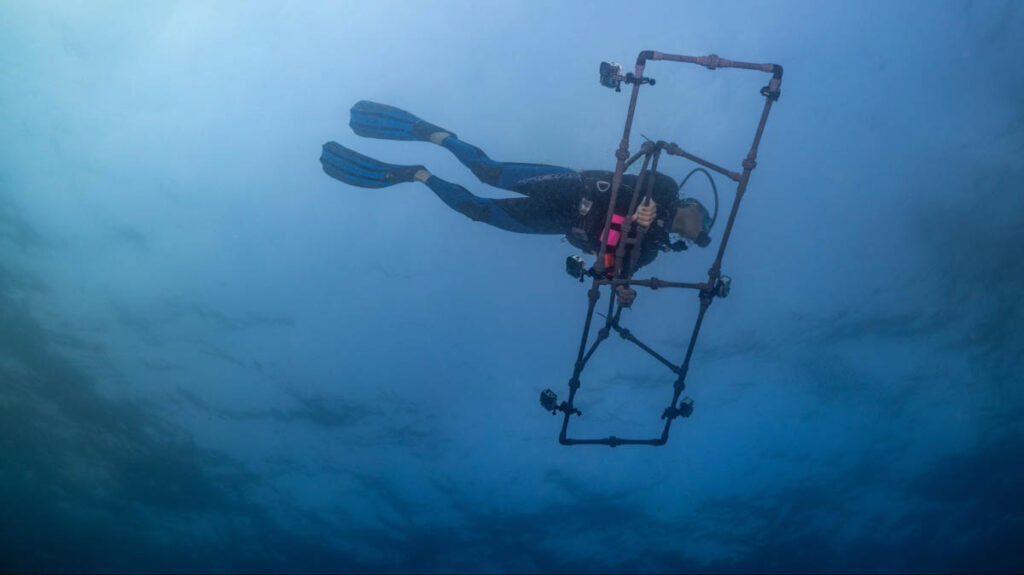In a groundbreaking development for deep-sea exploration and conservation efforts, researchers at the École Polytechnique Fédérale de Lausanne (EPFL) have unveiled DeepReefMap, an artificial intelligence system capable of generating 3D maps of coral reefs from underwater camera footage in mere minutes.
Coral reefs, often admired for their vibrant colors and diverse marine life, play a crucial ecological role, providing habitat for nearly one-third of known marine species despite covering less than 0.1% of the ocean’s surface. However, these vital ecosystems are facing unprecedented threats from rising sea temperatures and anthropogenic pollution, endangering the livelihoods of millions worldwide.
EPFL’s initiative, conducted in collaboration with organizations like the Transnational Red Sea Center (TRSC), aims to address these challenges by leveraging cutting-edge technology. DeepReefMap, developed at EPFL’s Environmental Computational Science and Earth Observation Laboratory (ECEO), enables the rapid creation of detailed 3D maps of coral reefs using commercially available cameras.
“This new system empowers anyone to contribute to the mapping of coral reefs,” states Samuel Gardaz, TRSC projects coordinator. “It promises to accelerate research in this field by streamlining data collection and reducing associated costs.”
Traditionally, obtaining 3D reconstructions of coral reefs has been laborious and expensive, requiring specialized equipment and expertise. However, DeepReefMap revolutionizes this process, allowing even amateur divers equipped with standard gear to capture footage over extensive reef areas.
To facilitate data collection, EPFL researchers have developed a PVC structure capable of holding multiple cameras, offering a cost-effective solution for local diving teams operating on limited budgets.
Once footage is uploaded, DeepReefMap employs advanced deep neural networks to overcome challenges such as poor lighting and underwater distortions. Furthermore, the system incorporates semantic segmentation algorithms to classify corals based on health and shape, providing valuable insights for field biologists.
“The versatility of DeepReefMap allows for the monitoring of reef dynamics over time, aiding in the identification of priority conservation areas,” explains Guilhem Banc-Prandi, postdoctoral fellow at EPFL’s Laboratory of Biological Geochemistry.
Looking ahead, EPFL envisions the integration of additional data layers into the mapping process, including species diversity, genetic information, and environmental factors. Ultimately, DeepReefMap could pave the way for the creation of comprehensive digital twins of coral reef ecosystems, facilitating informed conservation efforts on a global scale.
As Professor Devis Tuia notes, “While initially focused on coral reefs, the capabilities of DeepReefMap extend to other marine habitats, promising broader applications in marine conservation and exploration.”





